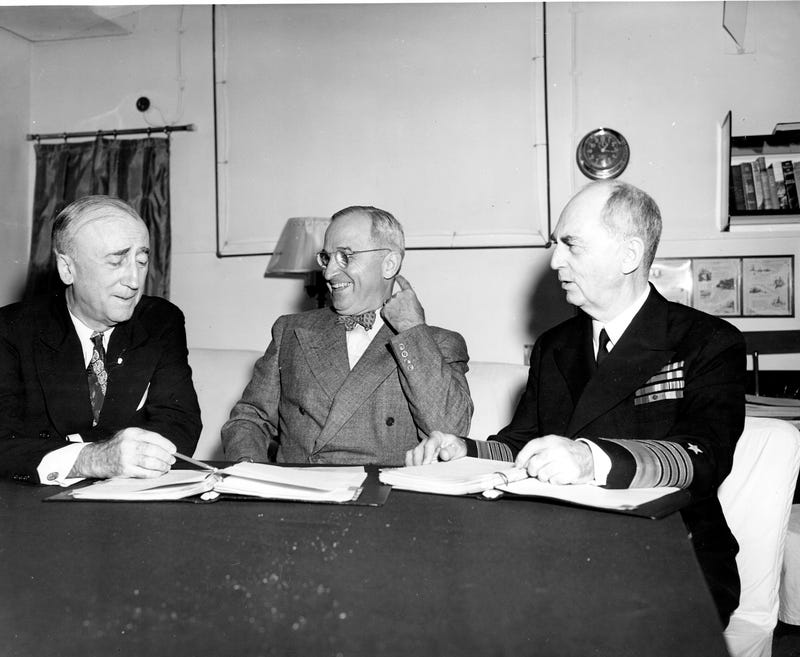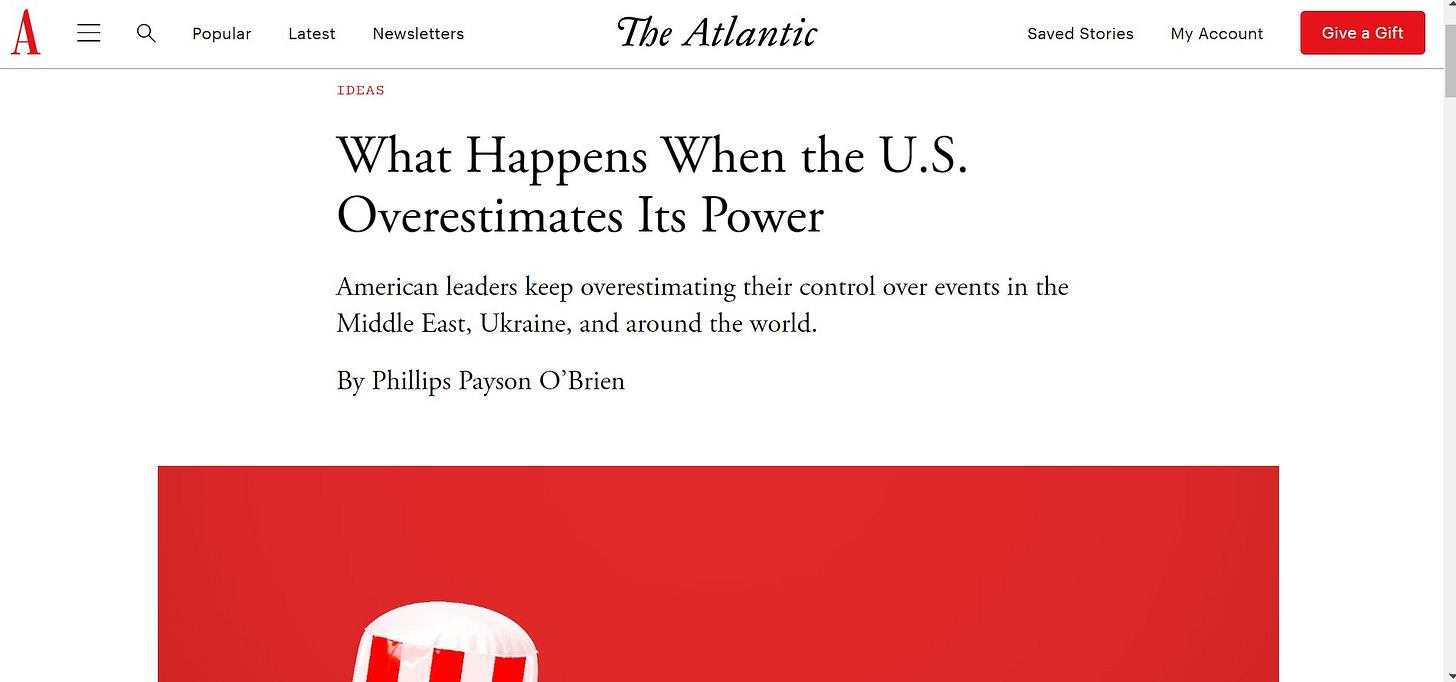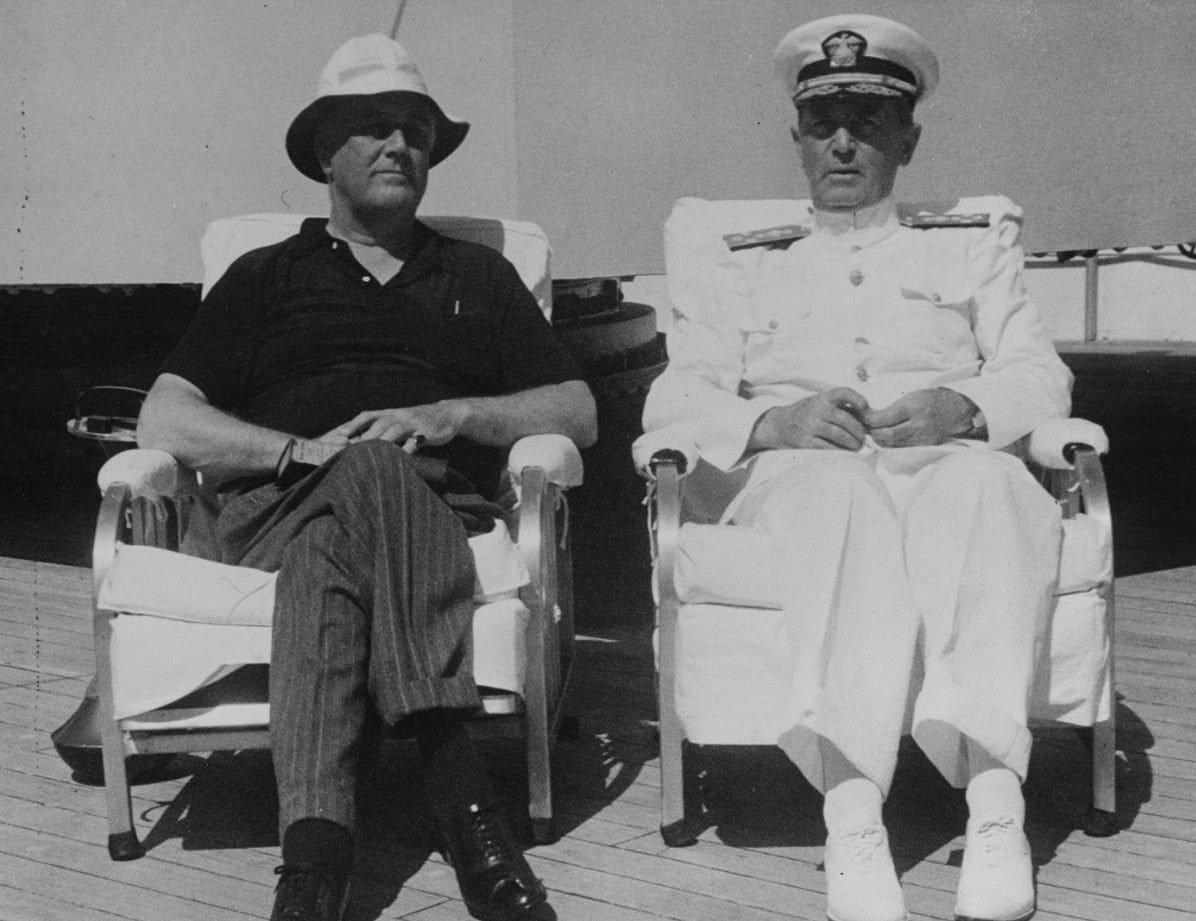How to Craft a Better US Foreign Policy
Learning when to say no and yes--with an added (rather long) bonus
Hi All.
If you remember I wrote two pieces in November on how to craft a better US foreign policy, basically calling for a more measured understanding of what the US could accomplish with its “power” and arguing against too much intervention. Well the series sparked some interesting thought, and I was able to publish much of those in a piece that came out in the Atlantic last weekend. It was entitled
What Happens When the US Overestimates its Power
Now that was not a long article (the Atlantic likes pieces around 1200-1300 words I’ve found). However it caused a great deal of feedback. As, you, my substack readers, don’t seem to mind longer, more developed and historically informed pieces, I thought I would do two things. First, I would try and provide some illustration which helped develop the ideas in the piece. Second, I’ve attached the rather longer first draft of the article—with links to different articles that support the arguments. You can see more of how the ideas developed in that article (as well as how much the final version was changed—if you can access the finished Atlantic Piece).
Learning when to say no and yes
The overall argument has been something Ive been debating in my mind for a number of years, which accelerated when I wrote a biography of Admiral William Leahy, Franklin Roosevelt’s Chief of Staff and first Chairman of the Joint Chiefs.1 Though Leahy stayed on as Truman’s chief of staff until 1949, he had more foreign policy differences with Truman than he ever did with Roosevelt (he was arguably Roosevelt’s oldest friend in Washington, as the two met in the Navy Department back in 1913).
Basically as long as Roosevelt was president, Leahy had enormous influence over US strategic policy. One Roosevelt died and was replaced by Truman, Leahy lost a great deal of influence, and often found himself in a small minority opposing the general drift of US foreign policy.

One of the things Leahy was most opposed to was the Truman administration’s policies towards Greece/Turkey and China. His opposition was mostly forgotten as almost everyone else in the administration disagreed with Leahy—but if you look at why he disagreed with the consensus you see some interesting principles emerging.
Keep reading with a 7-day free trial
Subscribe to Phillips’s Newsletter to keep reading this post and get 7 days of free access to the full post archives.


